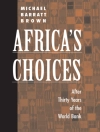Contesting home defence is a new history of the Home Guard, a novel national defence force of the Second World War composed of civilians who served as part-time soldiers: it questions accounts of the force and the war, which have seen them as symbols of national unity.
It scrutinises the Home Guard’s reputation and explores whether this ‘people’s army’ was a site of social cohesion or of dissension by assessing the competing claims made for it at the time. It then examines the way it was represented during the war and has been since, notably in Dad’s Army, and discusses the memories of men and women who served in it.
The book makes a significant and original contribution to debates concerning the British home front and introduces fresh ways of understanding the Second World War.
Inhaltsverzeichnis
List of illustrations
List of abbreviations
Preface and acknowledgements
1. Introduction: contested histories
PART ONE: POLITICAL CHALLENGES
2. The People’s Army: competing visions of the Home Guard
3. Women, weapons and home defence
PART TWO: REPRESENTATIONS
4. The Home Guard in wartime popular culture
5. Representations of women and home defence
6. Dad’s Army and Home Guard history
PART THREE: PERSONAL TESTIMONY
7. Men’s memories of the Home Guard
8. Women, memory and home defence
9. Conclusion
Appendix 1 Personal Testimony: Women
Appendix 2 Personal Testimony: Men
Bibliography
Über den Autor
Penny Summerfield is Professor of Modern History at the University of Manchester
Penny Summerfield is Professor of Women’s History at Manchester University












